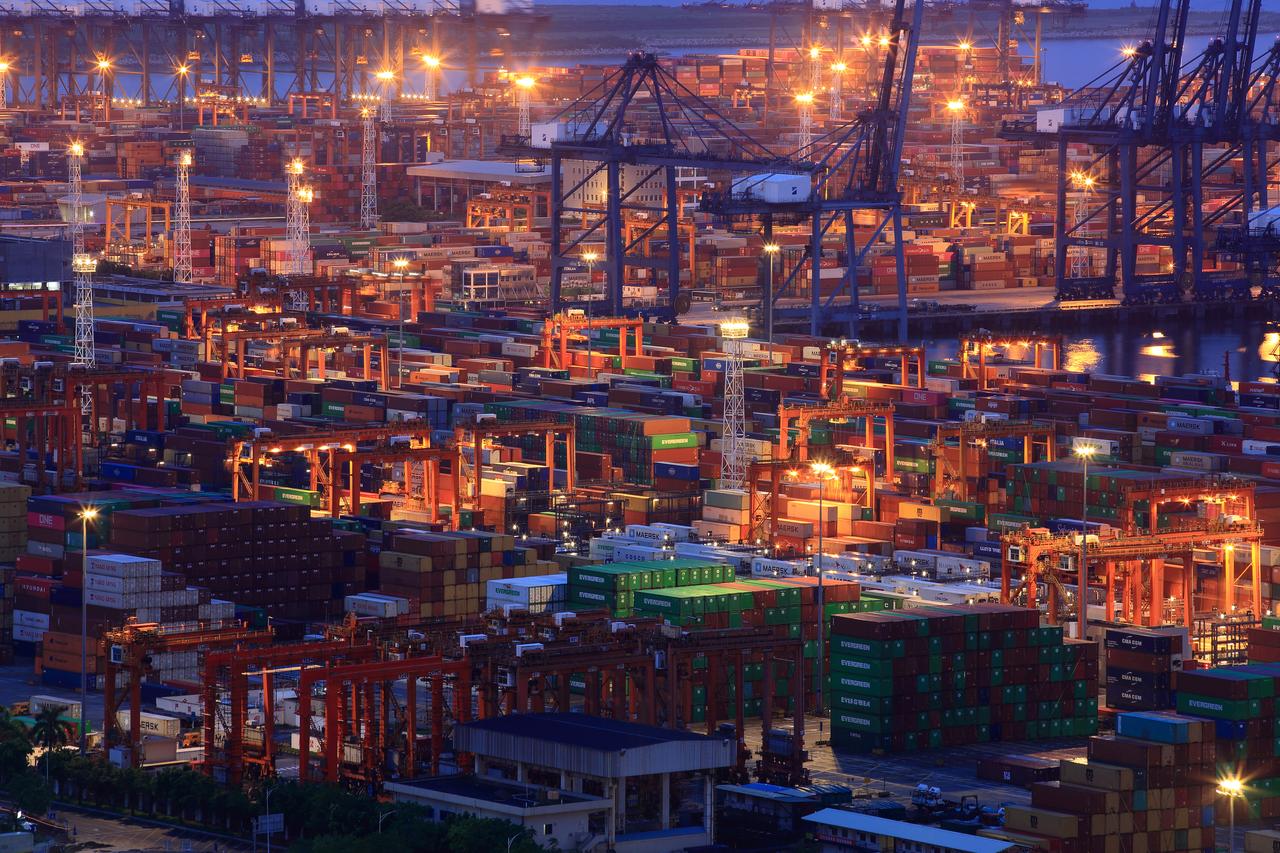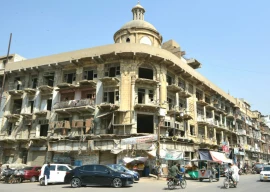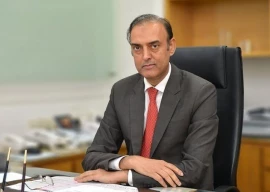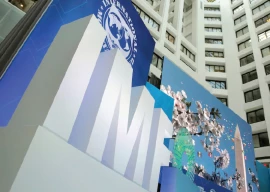
Representing the most ambitious attempt ever made at multilateral trade integration and putting in place a rules-based international trading system, the World Trade Organisation (WTO) is in disarray.
The impasse over selection of a new head (called director-general) is a reflection of the increasing emaciation as well as irrelevance of its 164 member countries.
Set up in 1995, the WTO is the successor to the General Agreement on Tariffs and Trade (GATT), which together with the World Bank and the International Monetary Fund (IMF) – collectively known as the Bretton Woods Institutions – formed part of the post-World War-II international economic order.
As an organisation, the WTO was conceived to perform three principal functions: to administer a set of multilateral trade agreements among its members, which created both legally binding rights and obligations; to serve as a forum of multilateral trade negotiations aiming at furthering trade liberalisation; and to provide a rules-based system for settlement of disputes among the members with regard to their commitments as well as interpretation of covered agreements.
Two out of these three objectives have hit a snag in recent years. Trade liberalisation has both winners and losers. On balance, competitive or efficient sectors or enterprises are the winners while their inefficient counterparts are the losers.
Since generally every economy has both efficient and inefficient sectors, WTO members have tended to be forthcoming in liberalising those sectors in which they are relatively more efficient whereas they have been reluctant to liberalise those sectors in which they are relatively less efficient.
Developed countries, for instance, have a highly protected and heavily subsidised agriculture sector. In Switzerland, tariffs on some agricultural products exceed 1,000%.
Japan applies 1,000% tariffs on import of rice while those on dairy products are as high as 600%. EU countries apply tariffs of more than 200% on several agricultural products. In case of the US, tariffs on a number of farm products are close to 100%.
Not to be left behind, developing countries, by and large, have highly protected industrial sub-sectors. India, for example, applies more than 250% tariffs on some textile products. Likewise, Pakistan has a highly protective auto sector.
Then there are non-tariff measures (NTMs), which mostly take the form of product standards and technical regulations. At times, the NTMs serve a legitimate policy objective, such as consumer health and safety, but at times they are designed to impede trade and thus offset any increased market access promised by tariff cuts.
Negotiations in the WTO are made on the basis of a single undertaking, which means nothing is agreed until everything is agreed. It is not possible for member countries to push for an agreement in sectors of their export interest while shying away from liberalising their sensitive sectors. As a result, the process of liberalisation has stalled.
Growing influence
Another development that hobbled trade negotiations is the growing influence of developing countries. Like developed countries in the past, major developing economies at present are capable of scuttling any multilateral trade deal if it is not to their satisfaction.
Since it is better to have no deal than a bad deal, developing countries have refused to open up their protected sectors until developed countries liberalise their protected sectors.
Trade without discrimination (the MFN clause) is the fundamental principle of the WTO. However, one of the exceptions to the most favoured nation (MFN) principle is the bilateral and regional preferential trade arrangements (PTAs).
In the wake of a mushroom growth of PTAs in the last 15 years, the MFN is no longer the rule, rather it has become almost an exception, as it is easier for countries to negotiate and seal deals on a bilateral or regional basis than to do so on a worldwide basis.
It is because of these factors that the Doha Round of trade negotiations, which was launched in 2001, could not be completed. Thus, one of the basic purposes of the WTO was thrown into a tailspin.
The dispute settlement system (DSS) of the WTO has been one of its major achievements. Comprising an elaborate mechanism, the DSS is designed to make a member withdraw a WTO-inconsistent measure.
The DSS, however, is not without its detractors. It is alleged that the system undermines state sovereignty as the dispute settlement body may declare a national piece of legislation or an executive act incompatible with the country’s international obligations under the WTO.
The long time taken to complete the withdrawal of a WTO-inconsistent measure has also come under fire.
Anti-trade practices
The inauguration of Donald Trump as US President further undermined the efficacy of WTO – though it must be admitted that the WTO was in disarray even before his rise.
The Trump administration has made no bones about its anti-trade liberalisation prejudice. From time to time, it has called into question the WTO’s raison d’etre.
Two specific policies/actions of the administration inflicted grave damage to the WTO. The first was unilateral imposition of punitive tariffs on imports from several countries, particularly China, which was manifestly contrary to the DSS of the WTO.
Recently, a WTO panel has ruled that the additional tariffs on China didn’t meet the WTO requirements. However, this ruling is likely to fall flat, at least as long as Trump is in the White House.
The second was the obstruction to filling vacancies in the Appellate Body, which is an integral part of the DSS. As a result, the Appellate Body’s strength has been reduced from seven to only one, thus rendering it unable to perform its functions.
The WTO’s problems were further compounded when its director-general Roberto Azevedo stepped down prematurely on August 31, thus hurling the body into a leadership vacuum.
Although the leadership vacuum is temporary – unless Washington puts its foot down and blocks consensus on the appointment of a new DG – the failure to perform its core functions indicates that the body’s fate hangs in the balance at a time when anti-globalisation sentiment is spiralling.
Come Covid-19. Although the pandemic has underlined the need for adopting a multilateral response to global challenges, be they economic or health-related, in practice countries, by and large, will adopt protectionist measures to revive their sagging economies. In this situation, multilateralism is likely to take a back seat.
Despite its shortcomings, the WTO has made veritable contributions to international trade over the years, of which at least two need a special mention.
It has brought into sharp relief that trade among countries is subject to explicit rules, which are binding on all members regardless of their size or economic muscle. International trade should not only be freer; it ought to be fair and transparent as well.
Until quite recently, powerful countries have often found it difficult to disregard WTO’s adverse rulings on their policies or acts.
Second, the WTO has brought home that since humanity faces common economic challenges, a multilateral approach, which takes into account interests of all groups of economies, is the best answer to them.
It is on the forum of WTO that developing countries and the least developed countries (LDCs) found themselves collectively strong enough to resist being dictated by developed countries and safeguard their interests. Bilaterally, they might not have been able to do so.
The alternative to multilateralism is unilateralism, where unfettered by common rules and obligations, big, powerful countries are apt to act arbitrarily at the expense of their smaller trading partners.
As some of the current US policies amply demonstrate, unilateralism ends up in sanctions and trade wars, which both compress the size of economic pie and breed political tensions. Unfortunately, unilateralism is gaining currency.
The writer is an Islamabad-based columnist
Published in The Express Tribune, Septe0mber 28th, 2020.
Like Business on Facebook, follow @TribuneBiz on Twitter to stay informed and join in the conversation.

1732090022-0/Elmo-and-Amelia-(1)1732090022-0-405x300.webp)
1725523665-0/Minecraft-Movie-(1)1725523665-0-165x106.webp)

1732089759-0/BeFunky-collage-(75)1732089759-0-165x106.webp)


1732084432-0/Untitled-design-(63)1732084432-0-270x192.webp)










COMMENTS
Comments are moderated and generally will be posted if they are on-topic and not abusive.
For more information, please see our Comments FAQ